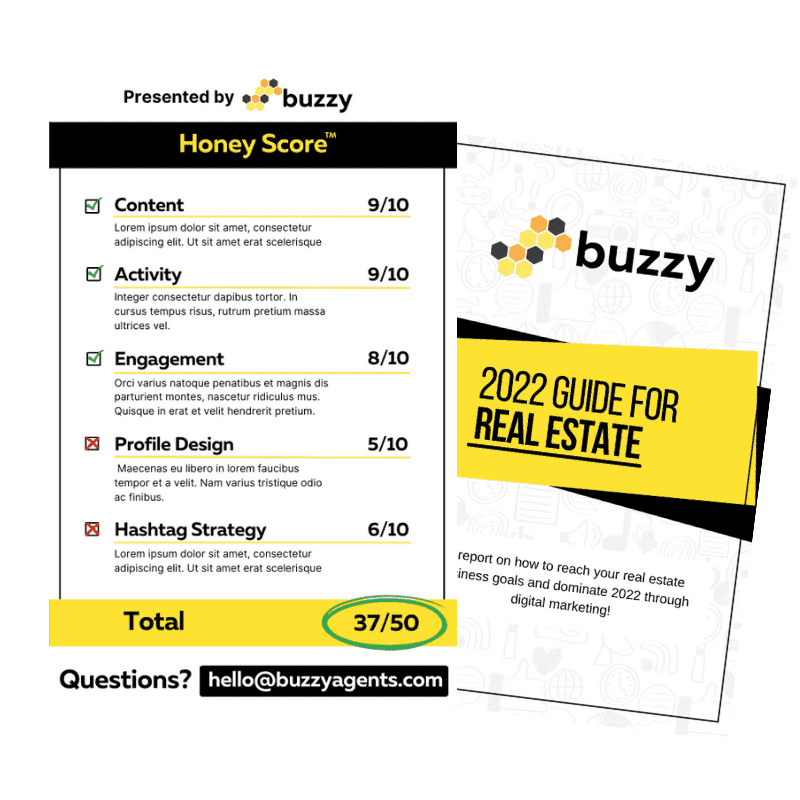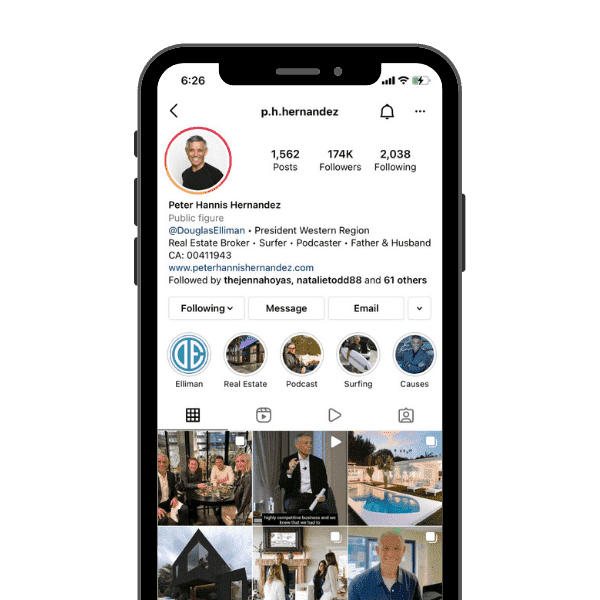Growing Brand Awareness in Real Estate
Introduction
In today’s competitive real estate landscape, establishing a strong brand presence is essential for success. Whether you’re a real estate developer, property management company, or individual agent, implementing effective strategies to increase brand awareness can significantly impact your ability to attract buyers and tenants. In this comprehensive guide, we’ll explore ten proven strategies tailored to the unique challenges and opportunities of the real estate industry.
- Establish Your Brand Identity:
Creating a compelling brand identity is the foundation of successful brand awareness campaigns. Start by defining your brand’s core message, values, and unique selling propositions (USPs). Develop visual elements such as logos, color schemes, and imagery that resonate with your target audience. Consider the following tips:
– Conduct market research to understand your audience’s preferences and pain points.
– Craft a compelling brand story that communicates your property’s lifestyle and value proposition.
– Ensure consistency across all brand touchpoints, including websites, social media, and marketing materials.
Example: XYZ Properties, known for luxury waterfront homes, crafted a brand identity that embodies exclusivity, elegance, and waterfront living. Their logo features subtle wave motifs, reflecting their premium waterfront offerings.
- Start a Compelling Blog:
Blogging is a powerful tool for engaging potential buyers, showcasing expertise, and improving search engine visibility. Create a content calendar that addresses common buyer questions, highlights neighborhood attractions, and shares industry insights. Leverage blog posts to tell stories about your properties, feature success stories, and provide valuable tips for homebuyers.
– Regularly update your blog with fresh, relevant content to keep readers engaged.
– Optimize blog posts for SEO by incorporating relevant keywords and meta descriptions.
– Encourage reader interaction through comments, social sharing, and email subscriptions.
Example: ABC Realty maintains a blog featuring neighborhood spotlights, home staging tips, and market trend analyses. Their informative content attracts organic traffic and positions them as a trusted resource in the local real estate market.
- Become a Trusted Resource:
Content marketing goes beyond promotional messages; it’s about providing value to your audience. Develop informative guides, ebooks, and infographics that address common buyer concerns, offer actionable advice, and showcase your expertise. By becoming a trusted resource, you build credibility and foster long-term relationships with potential buyers.
– Offer downloadable resources such as home buying checklists, mortgage guides, and relocation tips.
– Share real-time market updates, property insights, and investment opportunities to keep buyers informed.
– Collaborate with industry experts to co-create content and expand your reach.
Example: DEF Realty publishes monthly market reports, featuring data-driven analyses, expert insights, and predictions for the local real estate market. Their reports are widely shared and referenced by industry professionals and homebuyers alike.
- Facilitate Easy Sharing:
Encourage your audience to share your content by making sharing seamless and intuitive. Incorporate social media sharing buttons, email forwarding options, and “click to tweet” snippets in your content. Leverage user-generated content, testimonials, and reviews to showcase satisfied customers and build social proof.
– Create shareable infographics, videos, and interactive content that resonate with your audience.
– Run social media campaigns with hashtags, contests, and incentives for sharing and engagement.
– Monitor social mentions and respond promptly to user-generated content to foster community engagement.
Example: GHI Properties launched a social media campaign encouraging homeowners to share photos of their beautifully decorated homes using a designated hashtag. The campaign generated user-generated content and increased brand visibility across social channels.
- Forge Content Partnerships:
Collaborate with industry influencers, local media outlets, and complementary businesses to expand your brand’s reach and credibility. Guest post on reputable real estate blogs, participate in podcasts and webinars, and contribute articles to industry publications. By leveraging content partnerships, you tap into existing audiences and gain exposure to new potential buyers.
– Identify key influencers, thought leaders, and industry experts relevant to your target market.
– Offer value-added content such as case studies, expert interviews, and trend analyses in your partnerships.
– Cross-promote content across partner channels and leverage their expertise to enhance your brand authority.
Example: JKL Realty partnered with a renowned interior designer to co-create a series of home styling guides and virtual home tours. The partnership increased brand visibility, attracted design enthusiasts, and positioned JKL Realty as a leader in luxury home marketing.
- Partner with Local Businesses:
Strengthen your local presence by collaborating with neighboring businesses, community organizations, and civic groups. Sponsor local events, participate in charity drives, and support neighborhood initiatives to demonstrate your commitment to the community. By aligning with local businesses, you enhance brand visibility and foster goodwill among residents.
– Host joint events such as open houses, neighborhood tours, and community workshops.
– Sponsor local sports teams, cultural festivals, and charity fundraisers to showcase your brand’s community involvement.
– Network with local businesses, chambers of commerce, and industry associations to expand your reach and referral network.
Example: MNO Realty partnered with a local artisan market to sponsor a holiday home decorating contest, showcasing their properties’ festive appeal and supporting local artisans. The partnership generated buzz, attracted visitors, and strengthened community ties.
- Engage in Social Media Contests:
Social media contests are a fun and engaging way to interact with your audience, encourage user-generated content, and increase brand visibility. Host contests such as photo challenges, caption contests, and voting polls to spark excitement and participation. Leverage social media platforms’ sharing features to amplify contest reach and attract new followers.
– Define clear contest rules, timelines, and prizes to incentivize participation and generate buzz.
– Promote contests through targeted social media ads, email newsletters, and website banners.
– Showcase contest entries, winners, and highlights to create a sense of community and engagement.
Example: PQR Properties launched a “Dream Home Design Contest” on Instagram, inviting followers to submit their ideal home design concepts for a chance to win a design consultation. The contest garnered creative entries, increased brand visibility, and engaged design enthusiasts.
- Utilize Paid Social Advertising:
Harness the targeting capabilities and reach of paid social media advertising platforms such as Facebook Ads, Instagram Ads, and LinkedIn Ads. Develop targeted ad campaigns tailored to specific buyer demographics, interests, and behaviors. Leverage retargeting ads to reengage website visitors, leads, and past customers.
– Define clear campaign objectives, budgets, and key performance indicators (KPIs) for tracking ad performance.
– A/B test ad creatives, copy variations, and audience segments to optimize ad effectiveness.
– Monitor ad analytics, conversion rates, and ROI to refine ad strategies and maximize brand exposure.
Example: STU Realty launched a Facebook Ads campaign targeting first-time homebuyers in their local market with informative video ads highlighting the home buying process, mortgage options, and affordability tips. The campaign generated qualified leads and increased brand recognition among potential buyers.
- Leverage Influencer Marketing:
– Negotiate partnerships that include sponsored posts, product placements, event collaborations, and ambassadorships.
– Measure influencer campaign performance using metrics such as reach, engagement, clicks, conversions, and brand sentiment.
Example: UVW Realty collaborated with a local lifestyle influencer to showcase the vibrant community, amenities, and lifestyle offered by their properties through Instagram stories, blog features, and live virtual tours. The influencer partnership increased brand visibility among millennials and urban dwellers, driving website traffic and inquiries.
- Emphasize Visual Content:
Visual content such as virtual tours, 3D renderings, videos, and interactive media play a crucial role in captivating audiences and conveying property uniqueness. Invest in professional photography, videography, and graphic design to create visually compelling assets that showcase your properties’ features and benefits.
– Develop immersive virtual tours that allow prospective buyers to explore properties remotely.
– Create cinematic property videos highlighting key selling points, amenities, and lifestyle aspects.
– Incorporate interactive elements such as floor plans, drone footage, and neighborhood maps for a dynamic user experience.
Example: XYZ Realty produced a series of 360-degree virtual tours for their luxury listings, enabling potential buyers to experience properties from the comfort of their homes. The interactive tours garnered high engagement, increased time on site, and facilitated remote property viewings.
Conclusion
Growing brand awareness in real estate requires a strategic blend of creativity, consistency, and customer-centricity. By implementing the ten strategies outlined in this comprehensive guide, you can elevate your brand visibility, attract qualified leads, and foster meaningful connections with your target audience. Remember to track and measure the impact of your brand awareness initiatives, refine your strategies based on data insights, and continuously innovate to stay ahead in the competitive real estate market.
—
This extended guide provides a detailed roadmap for real estate professionals looking to enhance their brand awareness efforts. If you need further elaboration on any strategy or additional examples, feel free to let us know!
Share This Story, Choose Your Platform!
Recent Posts
Growing Brand Awareness in Real Estate
Introduction In today's competitive real estate landscape, establishing a strong brand presence is essential for success. [...]
Using AI Avatars to Scale Your Real Estate Brand
In today's digital age, personal branding has become a crucial aspect of success in the real [...]
Trending Real Estate Reels to Go Viral With in 2024
In our fast-paced media world, trends change often. We want to help keep you up to [...]
Growing Brand Awareness in Real Estate
Introduction In today's competitive real estate landscape, establishing a strong brand presence is essential for success. [...]
Using AI Avatars to Scale Your Real Estate Brand
In today's digital age, personal branding has become a crucial aspect of success in the real [...]
Trending Real Estate Reels to Go Viral With in 2024
In our fast-paced media world, trends change often. We want to help keep you up to [...]
The Real Estate Agent’s Guide to Success with Lead Generation through Paid Ads
As a real estate agent, you already know that generating leads is the lifeblood of your [...]








